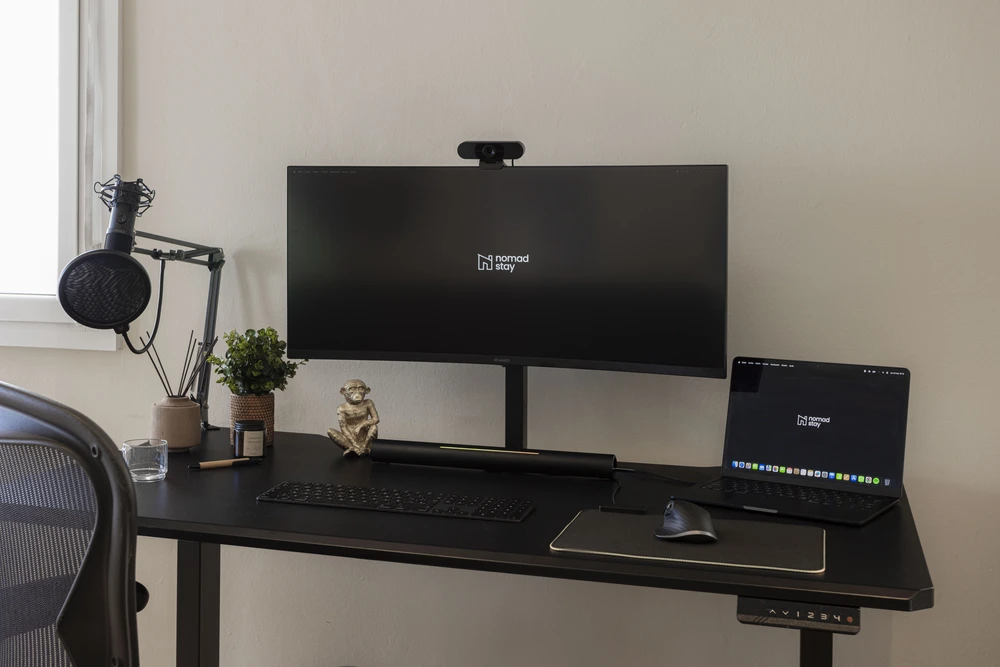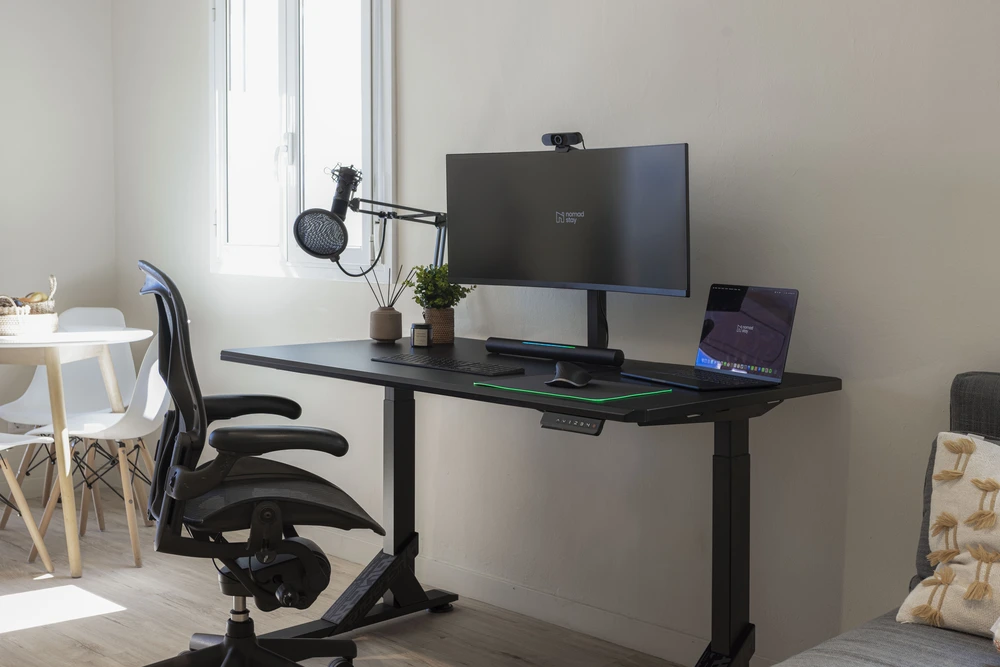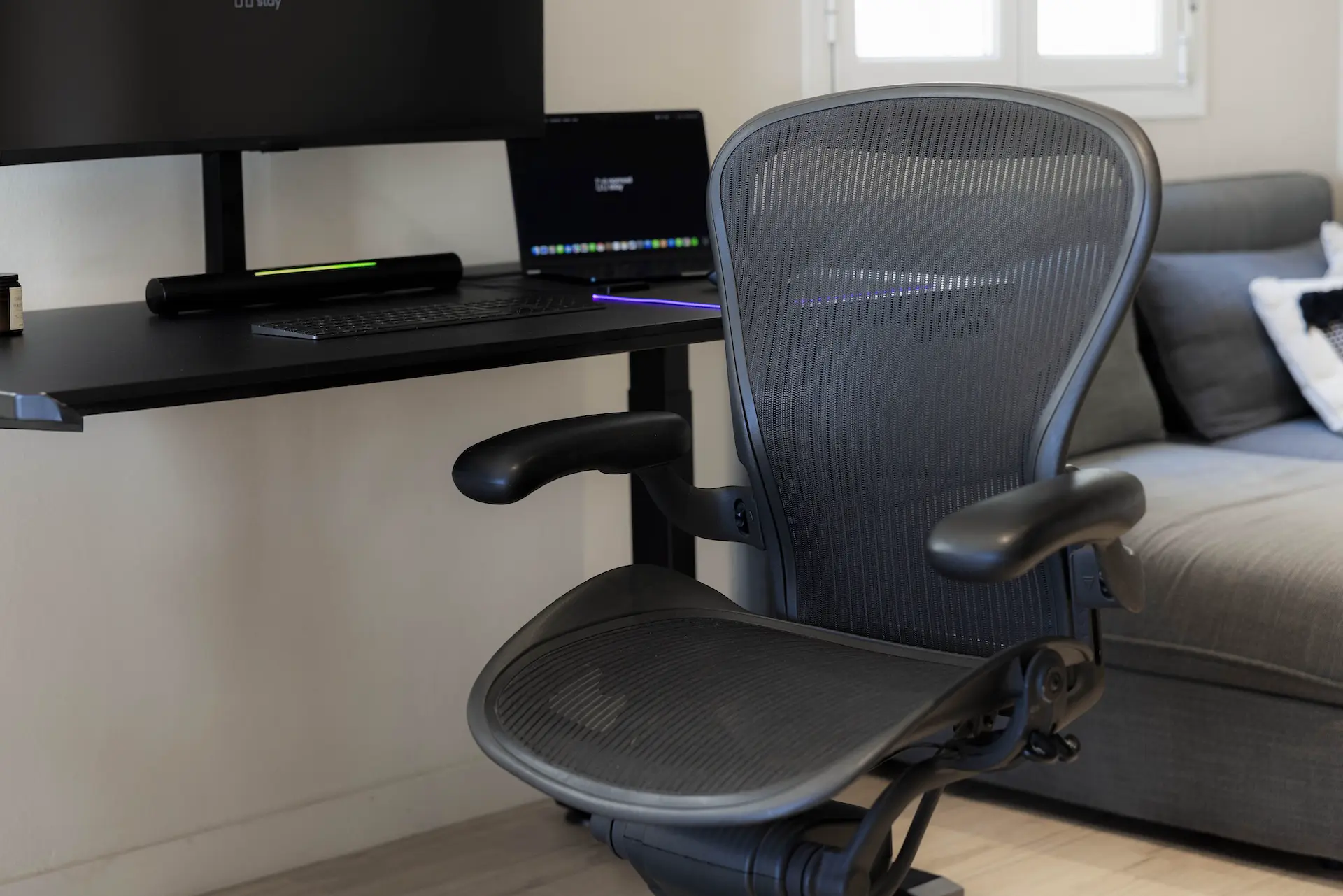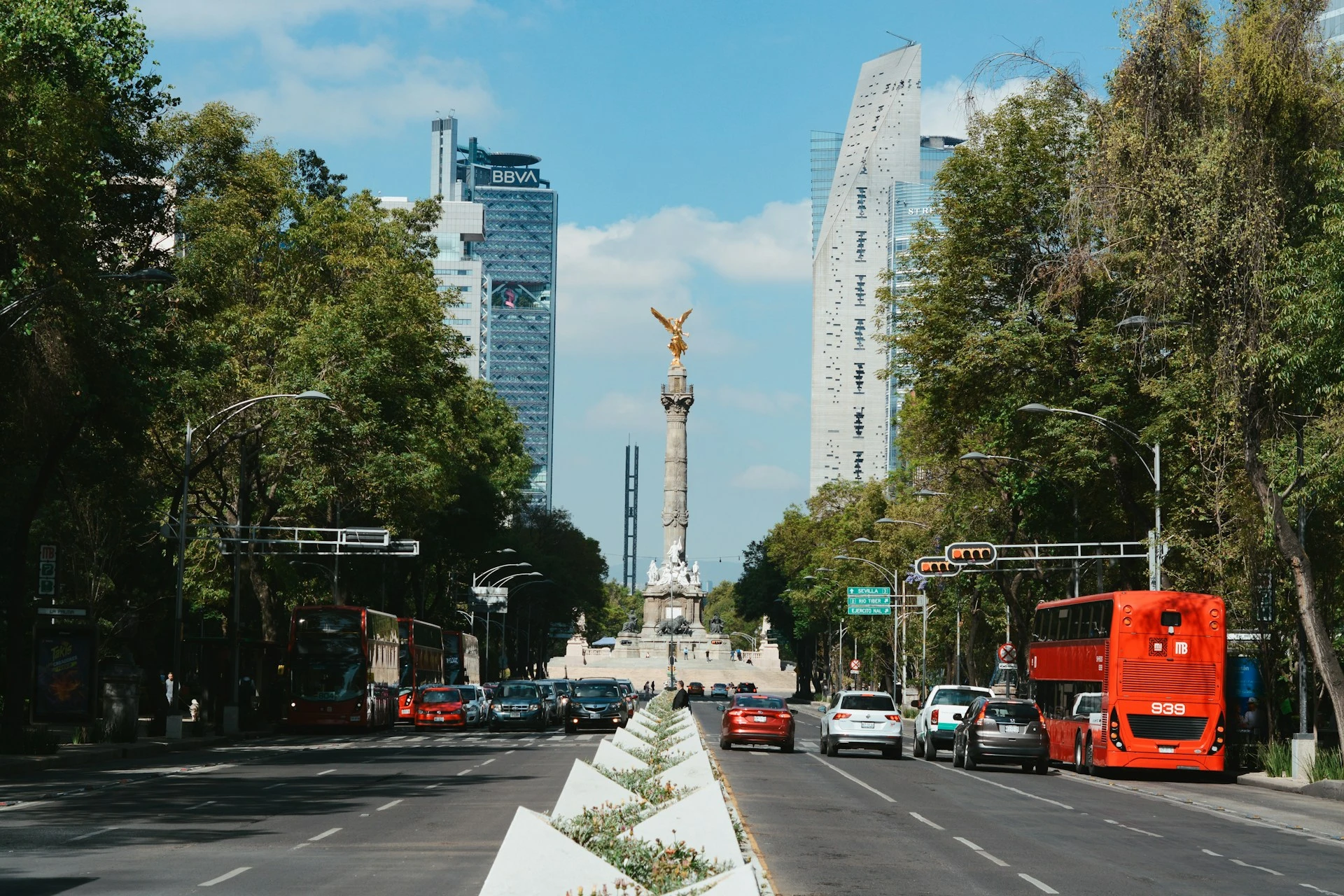Top Cities with Reliable Internet for Nomads
Explore the top cities for digital nomads offering fast internet, coworking spaces, and supportive remote work environments.

Top Cities with Reliable Internet for Nomads
Looking for cities with the best internet for remote work? Here’s a quick guide to six top destinations that combine fast, reliable internet with great amenities for digital nomads:
- Seoul, South Korea: Broadband speeds of 160 Mbps, 300+ coworking spaces, and nomad-friendly policies like the Digital Nomad Visa.
- Tokyo, Japan: Speeds up to 1 Gbps, 300 coworking spaces, and excellent public transit for remote work convenience.
- Singapore: Internet speeds up to 1 Gbps, 100+ coworking spaces, and strong government support for remote workers.
- Tallinn, Estonia: Average speeds of 1.4 Gbps, affordable living, and the e-Residency program for business management.
- Lisbon, Portugal: 150 Mbps internet, affordable housing, and a lively coworking scene with English-speaking communities.
- Barcelona, Spain: 150 Mbps internet, vibrant workspaces, and Spain’s digital nomad visa for long-term stays.
Quick Comparison
| City | Internet Speed | Cost of Living (1BR) | Coworking Spaces | Notable Perks |
|---|---|---|---|---|
| Seoul | 160 Mbps | $1,200/month | 300+ | Digital Nomad Visa, great transit |
| Tokyo | Up to 1 Gbps | $1,350–$2,700/month | 300+ | 24/7 coworking access |
| Singapore | 200 Mbps–1 Gbps | $1,800/month | 100+ | Tech.Pass, strong public WiFi |
| Tallinn | 1.4 Gbps | €400–€600/month | Many | e-Residency, affordable costs |
| Lisbon | 150 Mbps | €800–€1,200/month | 50+ | NHR tax benefits, cultural hubs |
| Barcelona | 150 Mbps | €1,000–€1,400/month | Many | Digital Nomad Visa, tech events |
Whether you prioritize speed, affordability, or remote work infrastructure, these cities offer a mix of connectivity and amenities to suit your needs.
1. Seoul, South Korea
Internet Speed and Reliability
Seoul is known for its cutting-edge internet infrastructure. The city boasts average broadband speeds of 160 Mbit/s and mobile speeds of 156 Mbit/s [2], thanks to its extensive fiber-optic network. This ensures fast and reliable internet access across the city.
Availability of Coworking Spaces
With over 300 coworking spaces spread across areas like Hongdae, Itaewon, and Gangnam, Seoul caters well to remote workers. Facilities such as Seoul Startup Hub provide ultra-fast 1 Gbps internet, with memberships ranging from $160 to $400 USD.
Affordability and Cost of Living
Living in Seoul is pricier compared to some other Asian cities but still more affordable than many Western hubs. A one-bedroom apartment in the city center costs about $1,200 on average, while coworking memberships fall between $160 and $400 USD.
Remote Work Infrastructure and Nomad-friendly Policies
Seoul is a magnet for digital nomads, offering perks like the Digital Nomad Visa, top-notch public transportation, and widespread fiber internet. Neighborhoods such as Gangnam and Itaewon combine modern conveniences with opportunities to experience local culture [1][2].
Seoul sets the bar high for digital nomads, though cities like Tokyo also provide excellent connectivity and infrastructure.
2. Tokyo, Japan
Internet Speed and Reliability
Tokyo is a top-tier city for internet connectivity, offering speeds that can reach up to 1 Gbps. Its state-of-the-art infrastructure ensures reliable, high-speed connections across both wired and wireless networks, making it a great choice for remote workers.
Availability of Coworking Spaces
With over 300 coworking spaces spread across lively neighborhoods like Shibuya, Shinjuku, and Roppongi, Tokyo has no shortage of options. Popular spots like Impact Hub Tokyo and WeWork provide 24/7 access, fast internet, and ergonomic setups. Membership costs range from ¥30,000 to ¥100,000 per month, accommodating different budgets and preferences.
Affordability and Cost of Living
Tokyo's cost of living can be high, with one-bedroom apartments in central areas priced between ¥150,000 and ¥300,000 ($1,350–$2,700 USD) per month [1]. However, the city's exceptional infrastructure and dynamic lifestyle offer a rewarding experience for digital nomads willing to invest.
Remote Work Infrastructure and Nomad-friendly Policies
Tokyo has embraced remote work with initiatives like the "Tokyo Remote Work Project", aimed at drawing global talent. The city's extensive public transit system and widespread access to high-speed internet make working from coworking spaces, cafés, or even parks incredibly convenient.
Blending cutting-edge technology with a rich cultural atmosphere, Tokyo offers digital nomads a unique mix of efficiency and inspiration. Its modern infrastructure and thriving coworking scene highlight how the city meets the needs of remote professionals.
3. Singapore
Internet Speed and Reliability
Singapore boasts some of the fastest internet speeds globally, ranging from 200 Mbps to 1 Gbps across the city. Its fiber-optic network ensures steady and reliable connectivity, making it a top choice for remote workers who need uninterrupted internet access.
Availability of Coworking Spaces
With over 100 coworking spaces located in business districts like Marina Bay and Raffles Place, Singapore provides plenty of options for professionals. Spaces like WeWork and Impact Hub offer perks such as 24/7 access, fast internet, video conferencing facilities, and networking opportunities, catering to the needs of modern workers.
Affordability and Cost of Living
Living in Singapore comes with a higher price tag. Expect to spend around $1,800 per month for a one-bedroom apartment, $35–$70 daily for food and other essentials, and $290–$580 for coworking memberships. While the city offers top-tier amenities, the costs reflect its premium lifestyle.
Remote Work Infrastructure and Nomad-friendly Policies
Singapore’s government actively supports remote work and the digital economy. Programs like "Tech.Pass" attract professionals, while the city provides excellent infrastructure for digital nomads. Key features include:
- Widespread Wireless@SG public Wi-Fi
- Strong cybersecurity systems
- Easy access to international banking services
- Efficient public transportation
For accommodation, platforms like Rent Remote offer furnished apartments equipped with high-speed internet and workstations in prime areas, ensuring a comfortable stay for remote workers.
Although Singapore provides a cutting-edge digital experience, more budget-friendly destinations like Tallinn can offer a balance of connectivity and affordability, appealing to a broader range of digital nomads.
4. Tallinn, Estonia
Internet Speed and Reliability
Tallinn offers lightning-fast internet, with average speeds of 1.4 Gbps for downloads and 1.1 Gbps for uploads. This makes it a top choice for digital professionals across Europe.
Availability of Coworking Spaces
The city is packed with coworking spaces, especially in areas like Kalamaja and Telliskivi. These spaces combine high-speed internet, comfortable work setups, and great networking opportunities. Here are a few popular options:
| Coworking Space | Features |
|---|---|
| Lift99 | High-speed internet, 24/7 access |
| Spring Hub | Ergonomic workstations, private offices |
| Garage48 | Community events, dedicated desks |
Affordability and Cost of Living
Compared to other European tech hubs, Tallinn is much easier on the wallet. Here's a breakdown of typical costs:
- Monthly rent for a one-bedroom apartment: €400-€600
- Daily expenses (food, transport, etc.): €20-€30
- Coworking membership: Starts at €150/month
Remote Work Infrastructure and Nomad-friendly Policies
Tallinn stands out for its advanced digital infrastructure and policies tailored to remote workers. The e-Residency program, for example, lets digital nomads manage businesses remotely - perfect for those planning extended stays.
The city’s digital ecosystem includes:
- Secure and advanced cybersecurity systems
- Widespread public WiFi
- Online government services
- Regular tech-focused events like Tallinn Digital Summit and Estonian ICT Week
For accommodations, platforms like Rent Remote provide remote worker-friendly options with reliable internet and ergonomic setups in key neighborhoods.
While Tallinn’s affordability and digital features are hard to beat, Lisbon offers a different blend of strong connectivity and a rich cultural vibe for remote workers.
sbb-itb-8c959d1
Digital Nomads Top Cities for 2024
5. Lisbon, Portugal
Lisbon stands out for its reliable digital infrastructure, sunny weather, and lively atmosphere, making it a popular destination for digital nomads.
Internet Speed and Reliability
With average download speeds of 150 Mbps and upload speeds of 50 Mbps, Lisbon ensures smooth online experiences. The city's network is stable, even during peak hours, and widely accessible in most residential areas - ideal for remote work.
Availability of Coworking Spaces
Lisbon is home to more than 50 coworking spaces, each with its own charm and features that reflect the city's character:
| Coworking Space | Location | Key Features |
|---|---|---|
| Hub Chiado | Chiado | Meeting rooms, event space |
| Lisbon Cowork | Santos | Private offices, rooftop views |
| Cowork Lisboa | Bairro Alto | Cultural activities, events |
Affordability and Cost of Living
Living in Lisbon is relatively budget-friendly compared to other European cities with similar tech ecosystems:
| Expense Category | Monthly Cost (€) |
|---|---|
| One-bedroom apartment | 800-1,200 |
| Daily expenses (utilities included) | 60-90 |
| Coworking membership | 150-250 |
Remote Work Infrastructure and Nomad-friendly Policies
Neighborhoods like Chiado and Bairro Alto are perfect for remote workers, offering easy access to coworking spaces, cafes, and recreational spots. Services such as Rent Remote cater specifically to digital nomads, providing apartments with ergonomic setups, including standing desks, dual monitors, and more.
Lisbon also attracts long-term remote workers with its NHR tax regime and simplified visa processes. The city regularly hosts tech meetups and networking events, and its growing English-speaking community makes settling in easier for newcomers.
While Lisbon offers a balance of affordability and connectivity, it faces competition from cities like Barcelona, which pairs similar perks with a Mediterranean flair.
6. Barcelona, Spain
Internet Speed and Reliability
Barcelona boasts a robust fiber-optic network, offering average download speeds of 150 Mbps and upload speeds of 50 Mbps. This ensures dependable internet access both at home and in public areas.
Availability of Coworking Spaces
Barcelona has a variety of coworking spaces that cater to different work preferences. Popular options include Impact Hub in Poblenou and BCNewt in El Raval, which combine modern facilities with opportunities to connect and network. Here's a quick look at some standout spaces:
| Coworking Space | Location | Key Features |
|---|---|---|
| Impact Hub | Poblenou | Innovation labs, event spaces |
| WeWork | Eixample | 24/7 access, private phone booths |
| BCNewt | El Raval | Rooftop workspace, networking events |
Affordability and Cost of Living
Living in Barcelona is relatively budget-friendly for digital nomads. Monthly rent typically ranges from €1,000 to €1,400, coworking memberships cost between €200 and €500, and daily expenses usually fall within €80 to €120.
Remote Work Infrastructure and Nomad-friendly Policies
Barcelona has cultivated a thriving tech scene, especially in areas like Poblenou (known as the innovation district) and El Raval, which blends cultural attractions with modern workspaces. Spain's introduction of the digital nomad visa in 2023 has made it easier for remote workers to settle in the city for extended periods.
What sets Barcelona apart is its advanced remote work infrastructure. For example, properties managed by companies like Rent Remote are designed with digital professionals in mind, featuring ergonomic setups like dual 4K monitors, standing desks, and professional-grade audio gear.
The @22 district in Poblenou regularly hosts tech events, creating a strong sense of community among remote workers. Add in Barcelona's efficient public transport system and an abundance of English-speaking networks, and you have a city that truly supports the needs of digital nomads.
Barcelona stands out for its mix of reliable connectivity, vibrant culture, and tailored remote work amenities, making it a top choice for digital professionals looking for a dynamic place to work and live.
Key Points to Remember
This guide highlights cities that offer a mix of reliable internet, affordable living, and infrastructure tailored for remote work - key factors for digital nomads. Fast and dependable internet is non-negotiable for remote professionals, and the top cities excel in providing strong connectivity and advanced digital infrastructure.
Here’s a quick breakdown of what to evaluate when picking your next remote work spot:
| Factor | Key Considerations |
|---|---|
| Internet Infrastructure | Look for cities with fiber-optic networks, extensive public WiFi, and dependable connections |
| Cost-to-Quality Ratio | Compare internet costs to speed and overall living expenses |
A city’s remote work ecosystem goes beyond internet speed. The expansion of 5G and fiber-optic networks is opening up more possibilities for remote professionals. Singapore, for instance, stands out with its advanced infrastructure, offering unmatched reliability for those working remotely.
Accommodations designed for remote workers can make a big difference. These often include enterprise-level internet with backup options to ensure your workflow isn’t disrupted, even during critical tasks.
Use tools like speedtest.net to pinpoint neighborhoods with strong internet and coworking spaces that offer backup connectivity. Cities like Seoul and Tokyo are prime examples, delivering not just impressive internet speeds but also well-rounded digital ecosystems - think efficient public transportation and widespread digital payment systems.
Finally, weigh your professional needs against lifestyle preferences. High-speed internet is essential, but factors like time zones, cultural experiences, and work-life balance are equally important for long-term happiness. The best digital nomad destinations strike a balance between reliable connectivity and opportunities for personal and cultural enrichment.





















